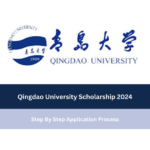The University of Geneva was established in 1559 by Jean Calvin with the goals of thought, instruction, discussion, and study. UNIGE, which has 16,500 students representing more than 150 different countries, provides more than 500 programs, includes 129 doctorate and undergraduate degrees as well as more than 300 continuing education courses in a vast array of subjects. University of geneva masters programs offer students to gain the skills and knowledge that one needs to succeed in thechosen field.
- #49 in the ranking.
- 2,164 Masters programs.
- 17,744 Academic Staff.
- 6,920 International Students.
- 11,001 Female Students and Public Institutions.
Read: Spokeo Artificial Intelligence Scholarship
Programs for Masters
- Mathematics & Natural Sciences (12)
- Law (9)
- Business & Management (8) Humanities (7)
- Journalism & Media (6) Social Sciences
- Sciences of Earth & Environmental Studies (5)
- IT & CS (3)
- Health and Medicine (3) Education & Training (2)
- Technology & Engineering (1)
- Sports, Relaxation, and Hospitality (1)
Education
UNIGE provides More than 500 programs—including 129 undergraduate, graduate, and doctorate programs—as well as more than 300 additional courses—all offered by UNIGE—cover a very broad range of subjects. University of geneva masters programs include the precise sciences, medicine, humanities, social sciences, law, and more. Research in the biological sciences (bio-informatics, molecular biology), basic particle physics, and astrophysics are among its areas of competence.
Additionally, UNIGE serves as both the host and co-host for the following seven National Centers of Competence in Research: LIVES-Overcoming Vulnerabilities in a Life Course Perspective, Frontiers in Genetics, MaNEP, PlanetS, SwissMap, Chemical Biology, and Synaptic Bases of Mental Conditions.
Application Process
Applicants must use the UNIGE application site to submit their online applications after completing the registration process. Starting on January 15th, the registration link will be accessible.
Only applicants who meet the University of Geneva masters programs enrollment standards will have their online application reviewed by the Master program’s Scientific Committee. Applications that are not complete will not be handled.
Documents
- An undergraduate degree from the University of Geneva (not affiliated with the GSEM) OR; a bachelor’s degree from an institution in Switzerland (not the University of Geneva), another institution in Switzerland, or another country;
The following papers must be included in an online application that you submit:
- English curriculum vitae (2 pages A4)
- Transcript of marks from prior coursework, including any additional university coursework and a bachelor’s degree
- A copy of your bachelor’s degree, if you already have one, and any further degrees you may have, translated into English or another official Swiss language
- English motivation letter (1 page A4)
- Evidence of at least a B2 level of skill in the English language, as demonstrated by officially recognized tests or papers that are regarded as comparable, including certificates or records of prior English language study.
- Description of prior coursework in statistics, probability, or computers at the bachelor’s or master’s level, if not taken through the GSEM.
Deadline
Applications must be received at the latest between January 15 and February 28 for university of geneva masters programs. Every year in September, there is just one intake of Master’s students. Being present on the first day of the Master’s program is required if you have been accepted.
Read: Buenas Opiniones Scholarship For Latino Students
Conclusion
In conclusion, the University of Geneva is a great option for students looking for master’s programs that cover a wide range of topics since it provides a top-notch education in a lively and varied academic environment. The university is a top choice for higher education because of its dedication to quality, research, and international cooperation.

